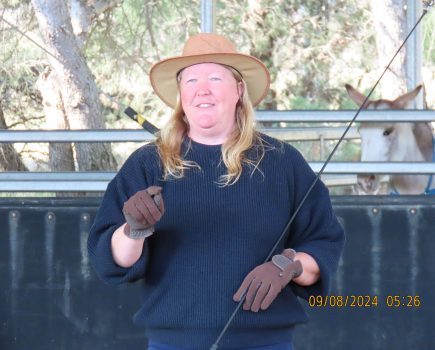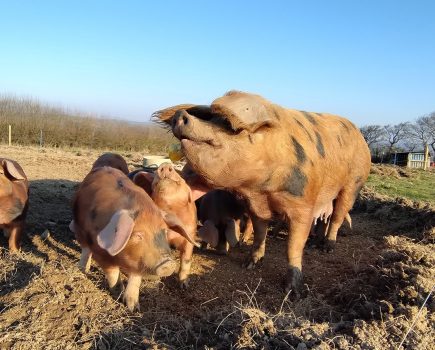Organic food better for you, academic study shows
Most smallholders grow some of their own food, often along organic lines because they believe this to be healthier; but scientific evidence on this subject has often been contradictory and confusing, writes Alan Beat.
Now, an expert international team has completed the most comprehensive analysis yet of available data to conclude that organically grown food does indeed offer significant health benefits over chemically grown equivalents.
The study, recently published in the British Journal of Nutrition, analysed 343 peer-reviewed publications on composition difference between the two types of food. It found significantly higher levels of ‘nutritionally desirable antioxidants’ that are linked to a reduced risk of chronic diseases, including cardiovascular and neurodegenerative diseases and certain cancers. It also found significantly lower levels of toxic heavy metals including cadmium.
Professor Carlo Leifert of Newcastle University, who led the study, said: “The organic vs non-organic debate has rumbled on for decades now but the evidence from this study is overwhelming – that organic food is high in antioxidants and lower in toxic metals and pesticides”.
Read more at: www.farming.co.uk/news/article/10144Fears over rural homes boom
Nearly 30,000 homes have been built in valuable areas of countryside despite local opposition because of confusion caused by the Coalition’s planning reforms, a report suggests.
Countryside campaigners accused Ministers of allowing unwanted greenfield development ‘through the back door’ after it emerged that planning inspectors are overruling hundreds of local objections to development.
Changes to planning rules, brought in last year, introduced a ‘presumption of sustainable development’ to force through more house building.
Under the rules, councils have to identify a five-year supply of land to meet demand for new properties in their area. Councils which fail to adopt local plans setting out where building can take place are at risk from developers.
However, fewer than 20 per cent of local authorities have had plans approved by the Government.
Opponents say this is because of the ‘onerous criteria’ in constructing viable plans. It means that planning officials are forcing through applications for thousands of homes on greenfield land.
A new report for the Campaign to Protect Rural England (CPRE) analysed 309 appeals against rejected planning applications for major housing developments on greenfield land.
The study found planning inspectors overturned council decisions in 72 per cent of cases where local authorities could not demonstrate a five-year land supply. This led to almost 27,000 homes being given planning permission against local authority wishes, the study said.
The CPRE called for changes to the national planning policy framework to prevent developers bypassing local democracy to get the go-ahead for building in the countryside, and to ensure brownfield land is favoured over greenfield sites.
John Rowley, planning officer at the CPRE, said: “These figures show that current policy is encouraging unnecessary house building in the countryside against the wishes of local people.”
More badger culls
The second year of badger culling in the English pilot areas is underway, with changes made to the policy intended to make it more effective and humane than last year.
NFU President Meurig Raymond stresses that controlling bovine TB in badgers ‘has to be an essential part of any strategy to wipe this disease out’, particularly in the South West where the disease is endemic.
Team Badger, representing 25 different organisations with a total of over 2 million supporters, is calling for the culls to be cancelled, claiming falling bTB numbers in England and Wales show the disease can be controlled through cattle measures.
New food crime unit
A new specialised unit to tackle food crime will be established by the end of this year, the Government has announced in its response to a report commissioned in response to the horsemeat scandal. The final report into the integrity and authenticity of UK food supply chain makes a number of recommendations about how to ensure consumers can be fully confident about the quality of their food.
Survey of geese
The Goose Club is carrying out a survey of breeds and wants all geese keepers to complete a questionnaire. It wants to check on the populations of pure breed geese and identify possible bloodlines. The survey is backed by the rare Breeds Survival Trust. Copies of the questionnaire are available at www.gooseclub.org.uk
Mobile phone boost
A programme is underway to improve mobile phone coverage in rural areas that are difficult to reach. The Vodafone Rural Open Sure Signal Trial is giving 100 rural communities the opportunity to apply for access. The scheme uses new technology to provide a 3G signal. Applications close on October 14.
Find out more at www.vodafone.co.uk/rural.
Coast path pledge
The building of a 3,000-mile coastal path round the entire English coast will be complete by 2020, deputy prime minister Nick Clegg has pledged, allaying fears by countryside and access groups that political impetus to complete the national trail was fading.
—————————-
This article is from the November issue of Country Smallholding
Send us your smallholding news – email: editorial.csh@archant.co.uk







